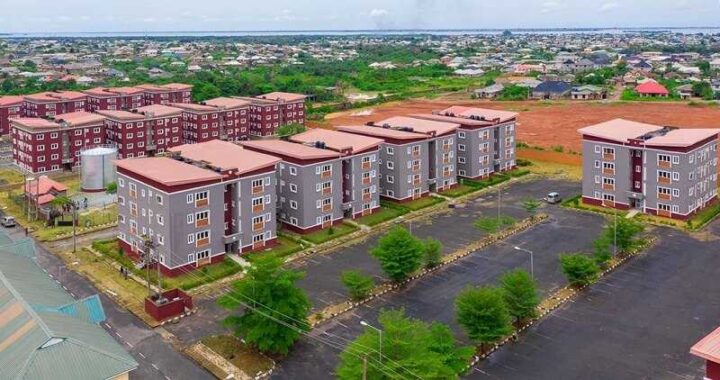Nigeria’s real estate sector is experiencing a slowdown in demand as spiraling inflation and rising interest rates continue to erode the purchasing power of potential homebuyers and investors. Real estate developers, agents, and analysts have expressed growing concern over the declining activity in property transactions, warning that if economic conditions persist, the sector may face deeper challenges in the months ahead.
Speaking with journalists and at recent industry forums, operators noted that the steep cost of living — driven by inflation now at multi-decade highs — has significantly affected disposable incomes, reducing the ability of Nigerians to invest in homes, commercial buildings, or land. This, coupled with the Central Bank of Nigeria’s (CBN) consistent tightening of the monetary policy rate, which has driven up interest rates on mortgages and construction financing, is discouraging both buyers and developers.

“The current economic climate is making it extremely difficult for people to make real estate investments,” said Kelechi Eze, a property developer in Lagos. “Even middle-class Nigerians who would ordinarily buy a plot or small apartment are struggling to cope with basic needs, let alone afford the upfront cost of real estate.”
Nigeria’s inflation rate has hovered above 30 percent for much of 2025, while interest rates have surged to their highest levels in decades as part of government efforts to control inflation and stabilize the naira. However, these moves, though necessary from a monetary standpoint, have had unintended consequences for the real estate market — a sector that thrives on access to affordable credit and stable economic conditions.
According to industry insiders, banks have become increasingly risk-averse, tightening lending conditions and reducing their exposure to real estate loans. Mortgage facilities, once considered an avenue for homeownership, have become less accessible as interest rates on housing loans now range from 25 to 30 percent annually, making repayments unaffordable for many.
“Real estate is a capital-intensive industry. Without access to low-interest loans, both developers and buyers are squeezed out,” said Hajara Bello, a property consultant in Abuja. “Most clients are putting off property purchases until economic conditions improve.”
The effect is visible across various segments of the property market. Sales of luxury apartments, previously popular among the upwardly mobile and diaspora buyers, have slowed significantly. Meanwhile, demand for middle-income housing has dropped as fewer people qualify for financing. Even land sales — typically the most liquid asset in real estate — have seen a decline in inquiries and transactions.
Real estate developers are also feeling the pinch from the rising costs of construction materials. The depreciation of the naira has made imported materials like tiles, sanitary wares, and fittings more expensive, while locally sourced items such as cement, iron rods, and roofing sheets have also surged due to inflation and transportation costs.
“Building a three-bedroom house now costs nearly double what it did two years ago,” said Tunde Owolabi, a developer in Ogun State. “We have projects that are stalled because clients can no longer fund the construction, and we too are struggling to maintain previous cost estimates.”
In response to the slowdown, some developers have begun offering flexible payment plans, discounts, and rent-to-own options to attract buyers. However, operators agree that these measures offer only marginal relief and do not address the root economic problems dampening demand.
Industry experts are calling for coordinated intervention by the government to support the sector. Suggested measures include targeted mortgage subsidies, reduction in development levies, and investment in affordable housing schemes to stimulate demand. Stakeholders also want fiscal policies that will ease inflationary pressures and stabilize the currency, thereby restoring confidence to long-term investors.
“The real estate sector is a major employer and a driver of GDP growth. If it collapses, the ripple effect will be felt across the entire economy,” said Chuka Nwokolo, a real estate economist. “What we need is a macroeconomic strategy that balances inflation control with growth support. Without that, we are only delaying a deeper crisis.”
While some investors continue to view real estate as a hedge against inflation, many are redirecting their funds to more liquid and less capital-intensive assets due to uncertainties in the market. This trend, analysts say, could reduce the pace of real estate development in urban centers and widen Nigeria’s housing deficit, which is already estimated to be over 20 million units.
In the meantime, many prospective homeowners are adopting a wait-and-see approach, hoping that inflation will ease and interest rates will fall in the near future. Until then, industry operators are bracing for a tough stretch, with reduced sales, stalled projects, and a tighter credit environment shaping the landscape of Nigeria’s real estate market.
Support InfoStride News' Credible Journalism: Only credible journalism can guarantee a fair, accountable and transparent society, including democracy and government. It involves a lot of efforts and money. We need your support. Click here to Donate
